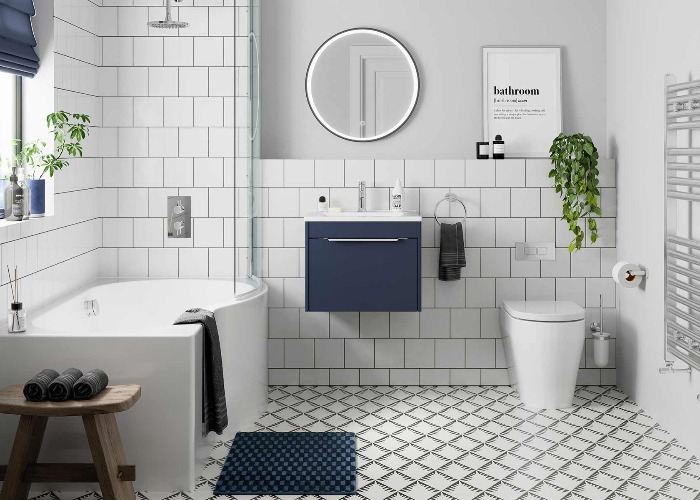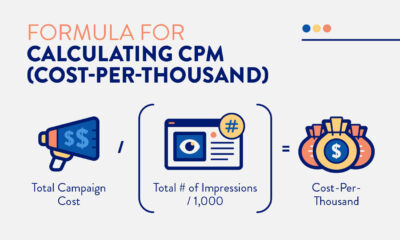Real Estate
SMALL ACTIONS TO TAKE CARE OF THE ENVIRONMENT FROM HOME

take care of the environment at home
The news about the climate crisis is so catastrophic and overwhelming that it seems that everything has already been said and there is nothing more to do to save our planet; however, it is important to remember that each person can have a positive impact with actions to care for the environment that start at home.
These simple tips will help you take action to help our planet:
Do not waste water. It is a scarce asset and at the same time essential for life, so it is vital not to waste it. By taking simple actions you will help care for them: that your shower does not last more than 10 minutes; turn off the tap while you brush your teeth or wash the dishes, recycle rainwater to water your plants or wash the yard, fix leaks as soon as they happen.
Don’t waste energy either. Turn off the lights you’re not using and switch to low-energy bulbs. Disconnect the charger from electronic devices such as cell phones as soon as charging is complete. It also helps to turn off “power vampires” like microwave ovens or other appliances that keep the clock or a light on.
recycle . Many of the products we buy have an impact on the environment; Recycling plastics, aluminum, glass, paper, and other materials helps reduce waste, harmful emissions from landfills, and lowers your carbon footprint. It also decreases the need to use natural resources to create new products. In addition, separating waste into different containers according to its nature simplifies waste treatment; separate organic waste, glass, cardboard, plastic and toxic waste.
Buy food consciously. Many recommend growing our own food as an option to reduce pollution, but let’s be honest: few people have the time and space to do it, so the alternative is to buy seasonal products that are produced in our region to reduce the impact that It has its cultivation and transportation. Reducing meat consumption will also have a positive effect on the environment.
Compost. If possible, compost leftover food, leaves, and other plant debris. Composting is an increasingly popular procedure that turns food scraps into rich nutrients for the soil, preventing them from becoming litter. Also, compost will help your plants grow by preventing pests and diseases.
Reuse. Second chances are good when it comes to avoiding creating more waste. Giving your items a new lease of life instead of throwing them away will not only help you save money, but you’ll avoid creating more trash. We are talking about things like clothes, furniture, toys or household utensils.
Reduce the use of toxic products. It is always a good idea to reduce the use of pollutants and toxic materials in the home, such as insecticides or chemical fertilizers. Also, you can choose to use environmentally friendly cleaning products that use biodegradable ingredients. You should also be careful to dispose of all toxic material properly instead of just throwing it in the trash can or worse down the drain; for example, oils must be properly disposed of to prevent them from contaminating the soil and bodies of water.
Say no to disposable. Avoid buying single-use items, such as disposable plates, glasses, and cutlery. We are also very used to using paper napkins, but cloth napkins have less impact on the environment. Substitute cloth bags for the plastic ones you get at the store to do your shopping.
Remember that a healthy environment starts from our home. Adopting habits such as recycling, reusing and buying more consciously allows us to contribute to the care of our home, planet Earth.

Real Estate
10 FACTORS YOU SHOULD REVIEW BEFORE BUYING A HOUSE

You are about to start your life in a new house. Maybe you’ve spent months looking for the perfect place for you and your family, found good financing, got the best deal, and after all the stars align, you’re ready to move… Until suddenly you notice a small detail that for some strange reason you had not noticed… And that’s where the headache begins.
As you know, buying a house is a big investment, so it is important to pay attention to several factors to ensure that you are making a good purchase and avoid unpleasant surprises in the future.
If we talk about the property itself, it is important that before making any deal you inspect the following aspects:
- Land: Check the land on which the house is located, making sure that it is in good condition and that it does not present stability, erosion, contamination or drainage problems.
- Structure: Verify that the structure of the house is in good condition and that it does not have foundation problems, cracks or significant cracks in the walls.
- Roofs: Inspect the condition of the roof to make sure there are no leaks, tears, or major damage. Check to see if any recent repairs have been done.
- Installations: Make sure that electrical and plumbing installations are in good repair and safe; And if the house has a heating and air conditioning system, make sure they work properly.
- Ventilation: Check that the house has good ventilation and that there are no moisture problems. Check the bathrooms and kitchen to see if they have adequate ventilation systems.
- Insulation: Make sure that the house has good thermal insulation to avoid problems with humidity and heat loss.
- Windows and doors: Check that windows and doors are in good repair, open and close properly, and are secure.
- Size and layout: Think about how many rooms you need, the size of the kitchen and bathrooms, if you need storage space and if there is enough space for you and your family. Check that the distribution of the house suits your needs and preferences.
- Property age: Older homes may require more maintenance and repairs, consider how much you are willing to spend on long-term property maintenance and repairs.
- Location: It is one of the most essential considerations when buying real estate so look for an area that suits your needs and lifestyle, and that has easy access to the amenities and services you need such as public transport, shops, schools and hospitals.
Additionally, there are other aspects that you should analyze before making your choice of housing:
- Check the documentation related to the property, such as the title deed, taxes and building permits, in this way you can make sure that everything is in order and that there are no legal or financial problems that could affect your investment.
- Of course, price is one of the most important factors when buying a house. Compare the prices of similar homes in the area to determine if the price is fair. Also consider your budget realistically to determine if you can afford to buy the house you are considering.
- Research the neighborhood to see if it is a safe and pleasant place to live. Consider the quality of the schools, crime rates, and local services like shops and restaurants.
Our last recommendation is that you take the time to research and compare different properties before making a final decision and remember that consulting with a real estate agent guarantees better results when investing.
Real Estate
6 Tips For Reducing The Cost Of Your Bathroom Renovation

Renovating a bathroom can be an expensive endeavor, but there are ways to reduce the costs without compromising on quality. Here are six tips for reducing the cost of your bathroom renovation.
Set a Budget and Stick to It
The first step to reducing the cost of your bathroom renovation is to set a budget and stick to it. Determine how much you can realistically afford to spend and make a list of the essential items you need to include in your renovation, such as a new toilet, shower or bathtub, sink, and fixtures. You can always add non-essential items later on as your budget allows.
Consider Refinishing Rather Than Replacing
Replacing fixtures and tiles can be costly, so consider refinishing instead. Refinishing involves applying a new coating to the surface of an existing fixture or tile, giving it a new look without the expense of a full replacement. This can include refinishing the bathtub, shower, sink, or tiles. You can also refinish cabinets and countertops.
Shop for Deals on Materials
Shopping around for deals on materials can save you a significant amount of money. Look for clearance sales, online discounts, and bulk discounts at home improvement stores. You can also consider using salvaged materials, such as reclaimed wood or vintage fixtures, for a unique look.
Do Some of the Work Yourself
Hiring a professional to do all the work can quickly add up in cost.Consider doing a portion of the work yourself, like composition or introducing installations You can also hire a handyman to help with the more challenging tasks, rather than hiring a contractor.
Focus on Small Changes
Sometimes, small changes can make a big difference in the overall look and feel of a bathroom. Consider replacing the fixtures and hardware such as towel racks toilet paper holders and light fixtures. These small changes can give your bathroom a fresh new look without breaking the bank.
Hire a Contractor with Experience
If you do decide to hire a contractor for your bathroom renovation, make sure to choose one with experience in bathroom renovations. This will ensure that they have the knowledge and expertise to complete the project efficiently and effectively, minimizing the chance of costly mistakes or delays.
In conclusion, renovating a bathroom can be expensive, but there are ways to reduce the costs without compromising on quality. By setting a budget and sticking to it, considering refinishing rather than replacing, shopping around for deals on materials, doing some of the work yourself, focusing on small changes, and hiring a contractor with experience, you can create the bathroom of your dreams without breaking the bank.
Real Estate
MyCBRE: Unveiling the Future of Real Estate Solutions

Being ahead of the curve is crucial in today’s competitive real estate market. MyCBRE is where you come in. MyCBRE is a revolutionary system that changes the game for real estate agents, investors, and customers. In this piece, we’ll take a look at MyCBRE’s cutting-edge tools and see how they improve CBRE’s real estate offerings. MyCBRE provides customers with the resources they need to succeed in the real estate market, from property management to investment research.
Streamlined Property Management
MyCBRE is a user-friendly property management solution that may save you time and effort. Owners and managers may see their whole portfolio in one place, including leases, maintenance requests, and financial data, on a dashboard. Proactive decision-making and effective stakeholder participation are both aided by this immediate access to data. By using MyCBRE, customers may streamline administrative processes including lease renewals, rent collecting, and maintenance scheduling.
Advanced-Data Analytics
MyCBRE’s powerful data analytics features are a highlight. The platform compiles massive volumes of real estate data and uses state-of-the-art analytical techniques to draw conclusions. Market and demographic trends, as well as analytics on how well a property is performing, are all available to users. By analyzing investment possibilities and forecasting market developments, users of MyCBRE may remain ahead of the competition in a fast-paced business.
Seamless Collaboration and Communication
Real estate agents and brokers may work together more efficiently thanks to MyCBRE. The platform offers a protected space for parties involved to communicate, share files, and keep each other up to date in real-time. Teams can improve their efficiency and openness using centralized communication channels like chat functions and project management software. Brokers, agents, clients, and investors may all benefit from MyCBRE’s streamlined communication features.
Personalized Insights and Recommendations
MyCBRE’s sophisticated algorithms provide users with insights and suggestions that are unique to their needs and goals. The platform provides useful possibilities and ideas by analyzing user behavior and historical data, allowing users to find properties that fit their investing strategy. MyCBRE’s AI-driven suggestions provide users a leg up by facilitating well-informed decision-making and increasing the potential for profit.
Conclusion
MyCBRE is revolutionizing the real estate market by providing a unified platform for improving property management, data analytics, teamwork, and individual insights. Its powerful data analytics equip customers with useful market insights while its simplified property management system streamlines operations. MyCBRE improves transparency and teamwork with its streamlined communication and collaboration features. In addition, consumers may confidently navigate the ever-evolving marketplace thanks to personalized suggestions. MyCBRE gives you access to the resources and data you need to succeed in the future of real estate, whether you’re a property owner, investor, or professional. MyCBRE is a powerful tool that may help you take advantage of changes in the real estate market.
-

 Fashion6 months ago
Fashion6 months agoHow To Style Earrings for a Night Out
-

 Real Estate1 year ago
Real Estate1 year agoHow to Unlock the Benefits of Real Estate Investment in Pakistan
-

 Business2 months ago
Business2 months agoWhat Can You Expect from a High-End London Office Space?
-

 Tech11 months ago
Tech11 months agoTMIIS Virtual Gateway: Opening New Horizons in Global Connectivity
-

 Digital Marketing2 months ago
Digital Marketing2 months agoHow to calculate CPM in digital marketing?
-

 Lifestyle1 year ago
Lifestyle1 year agoThe New Trend in Home Furnishings Teapoy and Wooden Sitting Stool
-

 General2 months ago
General2 months agoUnraveling the Mysteries of “λιβαισ”: A Comprehensive Guide
-

 Real Estate1 year ago
Real Estate1 year ago5 Common Mistakes to Avoid When Buying Property in Pawleys Island, SC